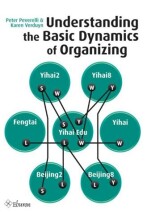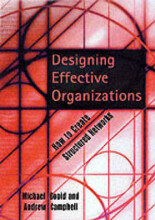Evaluating HRD programs
9 important questions on Evaluating HRD programs
Why are HRD programs not (well) evaluated? (3)
2 Many other factors can lead to improvement of performance (so it's hard to evaluate the impact of the training)
3 People associated with HRD programs are afraid of criticism and cuts if the evaluation isn't positive.
Kirkpatrick's evaluation framework is the most popular/influential. He argues that training efforts can be evaluated according to 4 criteria, describe those 4:
2 Learning: did the trainees learn what the objective said they should learn
3 Behavior: Does the trainee use what was learned in training back on the job?
4 Results: has the training effort improves the organizations effectiveness?
What is the criticism on Kirkpatrick's model (5)?
2 It could be better described as a taxonomy of outcomes
3 It fails to specify what sort of changes can be expected as a result of learning and what assessment techniques should be used to measure learning at each level
4 The validity is questioned
5 It is not well suited to the fast pace (tempo) of modern economy
- Higher grades + faster learning
- Never study anything twice
- 100% sure, 100% understanding
What are the most (3) serious shortcomings of Kirkpatrick's framework?
2 Lack of specificity in deadling with different types of learning outcomes
3 Lack of direction concerning which measures are appropriate to assess which outcome measures.
Which 3 vital issues do you have to consider when deciding which data collection method to use?
Validity: Does the method actually measures what it claims to meassure
Practically: How much time/money/resources are available for evaluation
Self-report data (or data provided by individuals in the program) is the most commonly used type of data in HR evaluation. What 2 problems can occur when relying on self-report data?
2 Socially desirable responses
> Another small problem is response shift bias: when perspective change during the training
A research design is a plan for conducting an evaluation study. Which 2 practices should be included in a research design?
2 Control group
Which 6 points should be followed for any type of program?
2 Develop an explicit evaluation strategy
3 Insist on specific training objectives
4 Obtain participant reactions
5 Develop criterion instrument (to measure outcomes)
5 Plan and execute the evaluation study
What are the 5 ways of data collection?
2 Questionnaire
3 Direct observation
4 Tests and simulations
5 Archival performance data
The question on the page originate from the summary of the following study material:
- A unique study and practice tool
- Never study anything twice again
- Get the grades you hope for
- 100% sure, 100% understanding































